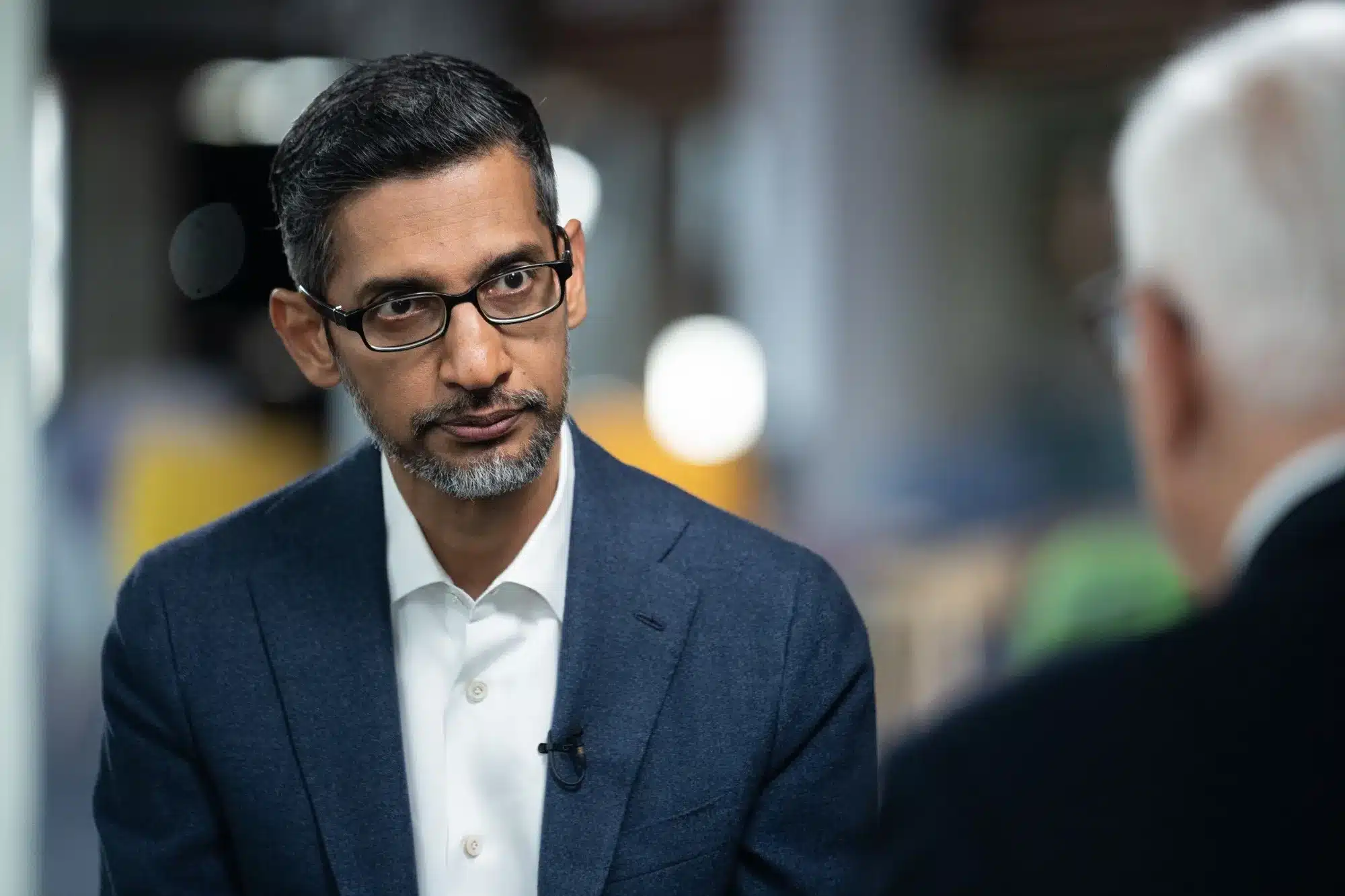Google CEO Pichai Calls US Fix a ‘De Facto’ Search Spinoff

Alphabet’s CEO, Sundar Pichai, recently testified in a federal court, asserting that a proposal from the Justice Department to share Google’s search data with competitors would effectively amount to a forced divestiture of the company’s search engine. Pichai emphasized that such a requirement could allow rivals to reverse-engineer Google’s technology, threatening the company’s competitive edge. His testimony comes as part of a trial examining Google’s alleged monopoly in online search, following a ruling by US District Judge Amit Mehta that found the tech giant had unlawfully maintained its dominant position in the market.
Concerns Over Data Sharing Proposal
During his testimony, Pichai expressed strong opposition to the Justice Department’s proposal, which he described as “far-reaching” and “extraordinary.” He argued that requiring Google to share its search data and ranking algorithms would undermine the company’s intellectual property developed over 25 years. Pichai warned that such measures could hinder Google’s ability to invest in research and development, potentially leading to “unintended consequences” for the market. He highlighted that the government’s proposed remedies would make it difficult for Google to compete effectively, raising concerns about the overall impact on innovation and consumer choice.
Pichai also compared the Justice Department’s proposal to the European Union’s Digital Markets Act, which mandates limited data sharing with rival search engines. He noted that while the European law is narrower in scope, it has already caused delays in launching new features in Europe. This slowdown, he argued, illustrates the potential negative effects of stringent regulatory measures on technological advancement.
Ongoing Antitrust Scrutiny
This trial marks Pichai’s third appearance in court regarding ongoing antitrust cases against Google. In recent years, the company has faced increasing scrutiny over its market practices, including accusations of maintaining dominance in mobile app marketplaces and online advertising technology. Pichai’s testimony is part of a broader investigation into how Google can restore competition in the online search sector after Judge Mehta’s ruling last year.
The Justice Department’s case against Google includes demands for the company to divest its Chrome browser and to cease paying for exclusive placements on devices and applications. These measures are aimed at dismantling what the government views as anti-competitive practices that have stifled competition. Google has countered these claims, arguing that the proposed remedies would harm consumers and weaken the United States’ position in global technology leadership.
Pichai’s Experience and Testimony
Sundar Pichai, who has been with Google since 2004 and became CEO in 2015, has a deep understanding of the company’s products and technology. During his testimony, he defended Google’s practices, stating that the company has successfully competed with rivals like Microsoft and OpenAI in securing deals for content used in AI systems. He pointed out that OpenAI has partnered with Apple to integrate its ChatGPT technology into iPhones, while Google is also pursuing similar agreements for its AI chatbot.
Pichai’s testimony was met with rigorous questioning from DOJ lawyer Veronica Onyema, who challenged him on the potential implications of divesting the Chrome browser. Pichai maintained that his extensive knowledge of Chrome’s security measures qualified him to address concerns about its future management. He acknowledged that no company is perfect in handling privacy and cybersecurity issues, emphasizing the need for collective efforts in addressing these challenges.
Future Implications and Legal Proceedings
As the trial progresses, Judge Mehta has indicated that he aims to deliver a decision on the proposed remedies by August. However, any changes resulting from the ruling are likely to face lengthy appeals, potentially extending the timeline for implementation. Google has signaled its intention to challenge the decision, which could lead to further legal battles, including a possible appeal to the US Supreme Court.
The outcome of this case could have significant implications for the future of Google and the broader tech industry. As the government seeks to rein in what it perceives as monopolistic behavior, the balance between regulation and innovation remains a critical issue in the ongoing discourse surrounding antitrust laws and their enforcement in the digital age.
Observer Voice is the one stop site for National, International news, Sports, Editor’s Choice, Art/culture contents, Quotes and much more. We also cover historical contents. Historical contents includes World History, Indian History, and what happened today. The website also covers Entertainment across the India and World.
Follow Us on Twitter, Instagram, Facebook, & LinkedIn

